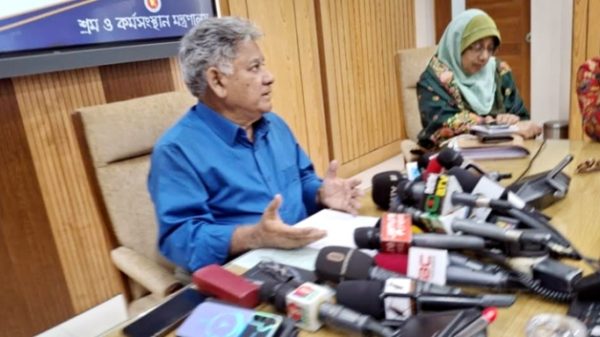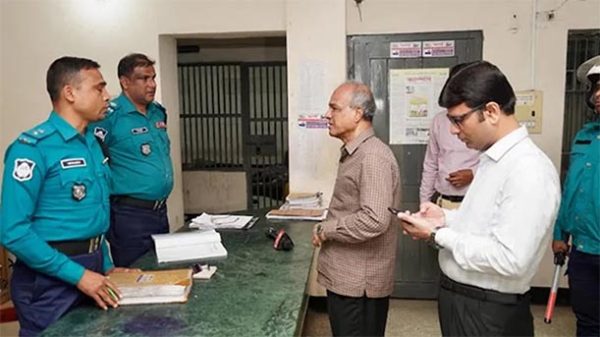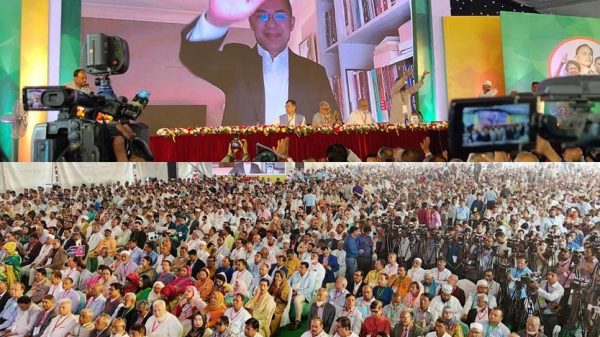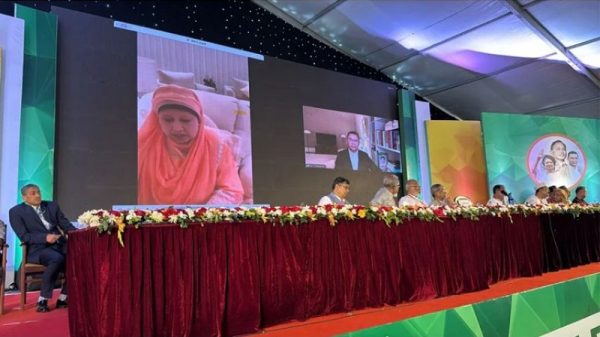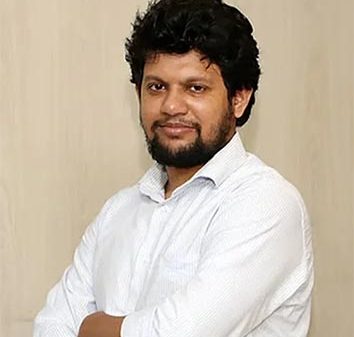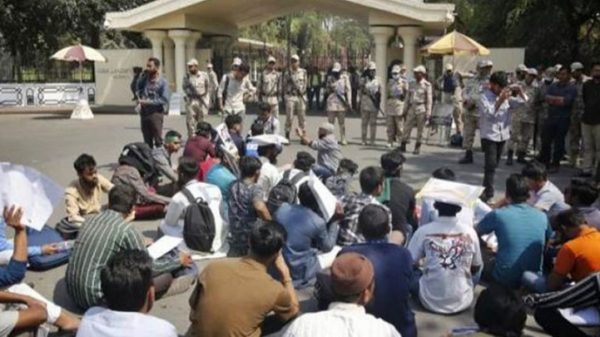Prof Yunus urges China to relocate solar panel plants to Bangladesh

- Update Time : Sunday, 25 August, 2024, 05:22 pm
- 67 Time View
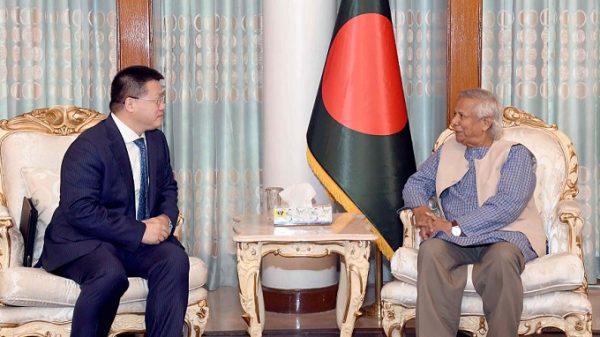
Online Desk : Interim government’s Chief Adviser Professor Muhammad Yunus on Sunday urged China to relocate some of its solar panel factories to Bangladesh in an effort to boost the country’s green transition and exports. Chinese manufacturers “can relocate” solar panel factories to Bangladesh, which will help Bangladesh diversify exports and help transition into a green economy, the 2006 Nobel Peace Laureate said. Professor Yunus made the call when Chinese Ambassador to Bangladesh Yao Wen called on the Chief Adviser at the State Guest House Jamuna, according to the Chief Adviser’s press wing, reports UNB.
The Chief Adviser stressed close economic collaboration between Beijing and Dhaka and asked the Chinese investors to relocate their plants in Bangladesh. Ambassador Wen said China stands ready to share its experience in reform and development with Bangladesh, implement the agreements and consensus reached by the two sides, and push forward pragmatic cooperation in various sectors. “No matter what changes have taken place in the domestic situation of Bangladesh, China’s commitment to develop China-Bangladesh relations remains unchanged,” he said.
Ambassador Yao welcomed the formation of the interim government, and congratulated Prof Yunus on assuming the position of Chief Adviser during a courtesy call on him at Jamuna on Sunday. He stressed China’s support for the interim government to build a poverty-free, democratic, and prosperous Bangladesh. He said China has emerged as one of the largest manufacturers of solar panels, but the country increasingly faced restrictions in the export market. Prof Yunus also called for increased imports of Bangladeshi goods to China in an effort to increase economic cooperation between the two nations.
He also called for technological transfer and increased collaboration in disaster management, education and farming. Ambassador Yao conveyed greetings of the Chinese leadership and its people to Professor Muhammad Yunus on his assumption of the leadership of the Bangladesh Interim Government. The Ambassador said Beijing was ready to work with Dhaka and hoped that he would “fulfill expectations of a poverty-free Bangladesh”. “The future of Bangladesh will be better and brighter under your leadership,” he told the Chief Adviser.
He said China and Bangladesh have recently upgraded their relationship to a “comprehensive strategic cooperative partnership” and added that both nations would celebrate the 50th year of diplomatic ties next year. The Ambassador said China would remain committed to finding a durable solution to the Rohingya crisis including a ceasefire in violence-torn Rakhine state in Myanmar. Professor Yunus hoped that China would continue to provide political, financial and humanitarian assistance to more than one million Rohingya people living in Bangladesh.
The Chief Adviser also recalled his fond memories in China where several universities have set up Yunus Centres and many young people have formed Three Zero Clubs whose members make a commitment for zero contribution to climate change, zero wealth concentration and zero unemployment. He emphasised youth to youth collaboration and people to people connection between the two countries.
During the meeting the Chinese Ambassador conveyed Chinese leaderships’ invitation to Professor Yunus to visit China at his convenient time. He said Bangladesh was at the crossroads but “the people of Bangladesh will overcome the challenges.” The Chinese Ambassador handed over a cheque for US 20,000 dollars to the Flood Relief Fund of the Chief Adviser from the embassy. He said the Chinese Red Cross would also donate US 100,000 dollars as humanitarian aid to Bangladesh’s flood affected people.
Ambassador Yao said that China strictly follows the principle of non-interference in other countries’ internal affairs, respecting the development path independently chosen by the Bangladeshi people, and expects that Bangladesh would realize unity, stability, development and prosperity at an early date.
The ambassador said that China and Bangladesh are traditionally friendly neighbors and comprehensive strategic cooperative partners. The bilateral relationship sets up a model of mutual respect, and cooperation for win-win results for developing countries.
The envoy said China firmly supports Bangladesh in safeguarding its national sovereignty, independence, and territorial integrity, maintaining national unity and stability, and playing a more significant role in international and regional affairs.
He said that both China and Bangladesh are at a crucial stage of development and revitalization, with enormous potential for cooperation. China is about to import fresh mangoes from Bangladesh, expedite the negotiation for a Free Trade Agreement, optimise the China-Bangladesh Investment Agreement, encourage local currency settlement in bilateral trade and support Chinese enterprises in investing in Bangladesh.
“China is committed to working with Bangladesh to organise and carry out activities for the ‘China-Bangladesh Year of People-to-People Exchanges’ in 2025,” said the ambassador. China will also maintain visits and exchanges at all levels and in various sectors, elevating the Comprehensive Strategic Cooperative Partnership to a new height, he said.
Ambassador Yao reiterated that China is determined to encourage and engage with the relevant parties in Myanmar for a ceasefire, so as to create amicable conditions for the early repatriation of the displaced people from Rakhine State of Myanmar.


